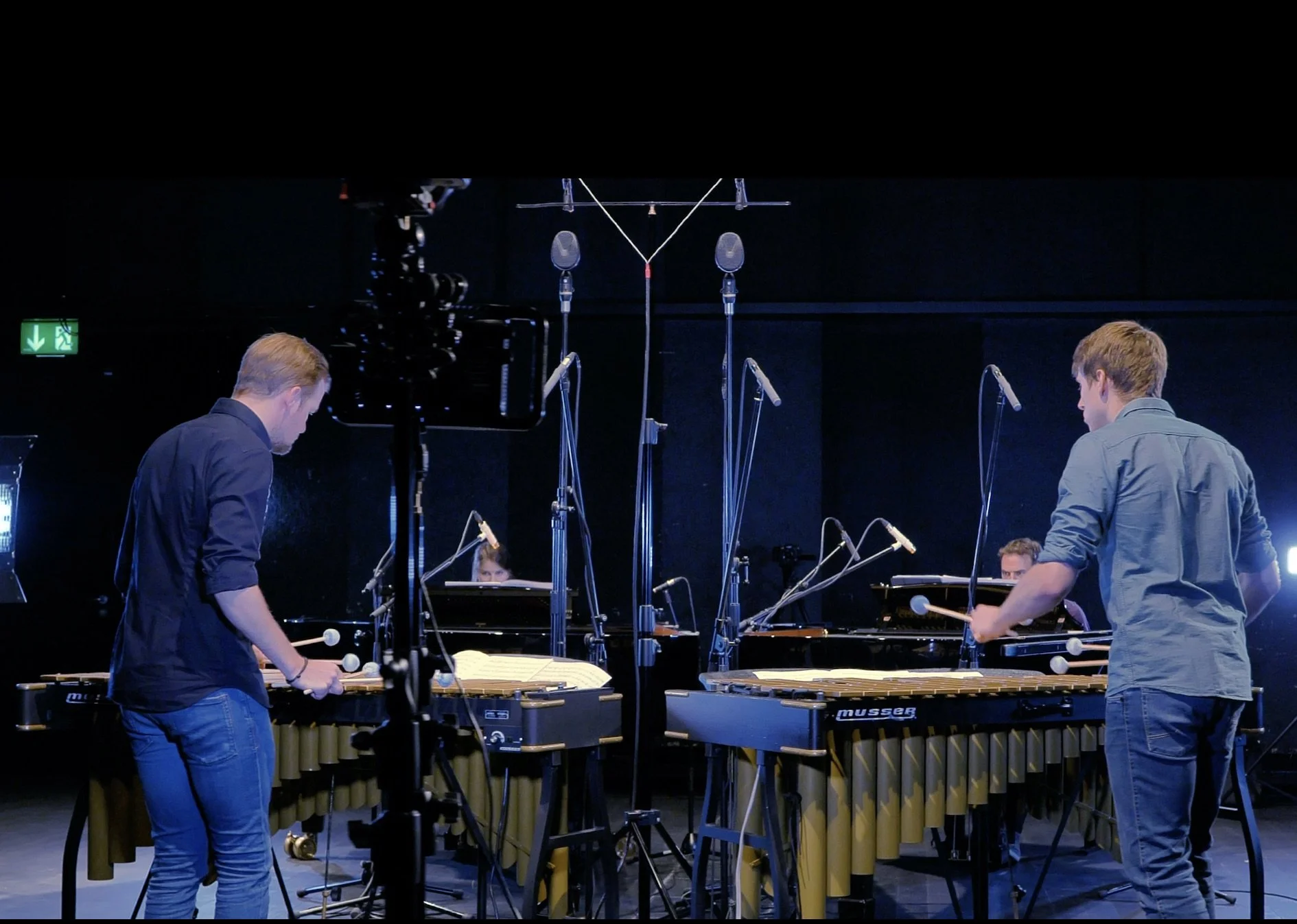John Psathas The All-Seeing Sky: the inspiration of friends
Composer John Psathas: His new concerto is mature, thoughtful and surprisingly delicate
Photo credit: Robert Cross
The theme for Orchestra Wellington’s 2022 season is “Circle of Friends”. The phrase refers to the 19th century composers and musicians grouped around Robert and Clara Schumann, and the six programmes feature their music and that of their friends Fanny and Felix Mendelssohn and Johannes Brahms. On Saturday, the first concert of the Orchestra’s year also featured an important friend of the Orchestra, their composer-in-residence John Psathas, now in his third year in the role.
The centrepiece of the programme was The All-Seeing Sky, a new double percussion concerto by Psathas. He loves to collaborate with virtuoso performers and his deep musical friendships extend world-wide. In a recent interview he explained he finds “getting to know people in a personal sense” even more inspiring than getting to know them as performers. Talking of recent compositions, he commented that “in all these pieces there’s a reflection of the people I’m writing for, the individual and who they are as a person.”
For The All-Seeing Sky that inspiration came from his long-time friend and collaborator, Swiss percussion virtuoso Fabian Ziegler, and Ziegler’s colleague Luca Staffelbach. “I trust these musicians in a musical and technical way,” says Psathas, “and also personally.” He has entrusted them with a marvellously virtuosic work, one that is also surprisingly subtle and sensitive for a percussion concerto with themes of death and the underworld.
It was Ziegler who requested “not too big an orchestra”. The soloists play just two instruments, a marimba and a vibraphone, positioned at the front of the stage. Their performance was astonishing, a unison of approach like a marvellous chamber ensemble, body language and gestures completely synchronized as they played the challenging concerto from memory.
Percussionists Fabian Ziegler and Luca Staffelbach
…”fleet virtuosity and astonishing unison of approach”
Psathas describes himself as a “doom and gloom person” and he was inspired by the writing and illustrations in Dante’s Inferno. The first movement, “The Portals of Dis”, repeats delicate threads of motives and ideas, the strings with ethereal harmonics, melodic lines from cello and bassoon slipping under continuous percussion textures. Yes, the vibe is dark but are we heading for the gates of hell or some kind of heaven?
The second movement, “The Upper World”, returns us to the present but again the composer asks a question - is our world today very different from the hellish underworld? There are moments of grandeur but the intent is dark. Psathas uses his materials and resources with great skill and deep thoughtfulness in what is possibly one of this prolific composer’s finest works. This is music from a mature composer, more subtle than his popular, extrovert and dynamic percussion-soaked compositions as a younger artist.
“The All-Seeing Sky”, the final movement, explores ideas of surveillance in our modern lives. It does this with fascinating colours of tapping and snapping, wooden sticks rapping on the bass drum case, snap pizzicato from the low strings and matching effects from the soloists. This movement is rhythmically edgy, with asymmetries, syncopations, and cross-rhythms and finally the familiar Psathas dramatic drive forward to a big climax. The soloists, too, are driven to even greater heights of fleet virtuosity and the audience exploded in a great ovation.
The work has now had premiere performances in Christchurch and Wellington and the third commissioning party, City Light Orchestra (Lucerne), will enjoy the concerto’s third outing in late June when the visiting percussionists return with Psathas to Switzerland.
Taddei showed his programming flair in the works chosen to open and close the concert. Composer Fanny Mendelssohn was eclipsed during her short career, and in musical history since, by her brother Felix who, with her father, didn’t encourage exposure for her, despite her talents. Her Overture in C was an accomplished and charming opener for the concert.
Conductor Marc Taddei with Orchestra Wellington
…programming flair and a light and airy conception of Schumann’s “Spring” Symphony
Robert Schumann’s butterfly-light “Spring” Symphony, written in his 30’s and full of romantic love for Clara, was played with a happy, airy conception. It was also a perfect foil for the delicacy of The All-Seeing Sky, which would not have benefited from a blockbuster weighty final symphony. Taddei’s pace and balance were just right; with beautifully shaped phrases he danced his way through the Scherzo and Finale and the concert ended in a cheerful mood.
Orchestra Wellington, like many orchestras world-wide, has struggled to maintain playing fitness through lockdowns and concert cancellations. There were a few rough edges during the evening, but this was a well-programmed and well-presented concert and an auspicious beginning to their 2022 season.
Circle of Friends “Spring Symphony”, music by Fanny Mendelssohn, John Psathas and Robert Schumann. Orchestra Wellington, Fabian Ziegler and Luca Staffelbach (percussion soloists), Marc Taddei (conductor). Wellington, 20 May, 2022. Recorded by RNZ Concert for later broadcast.



